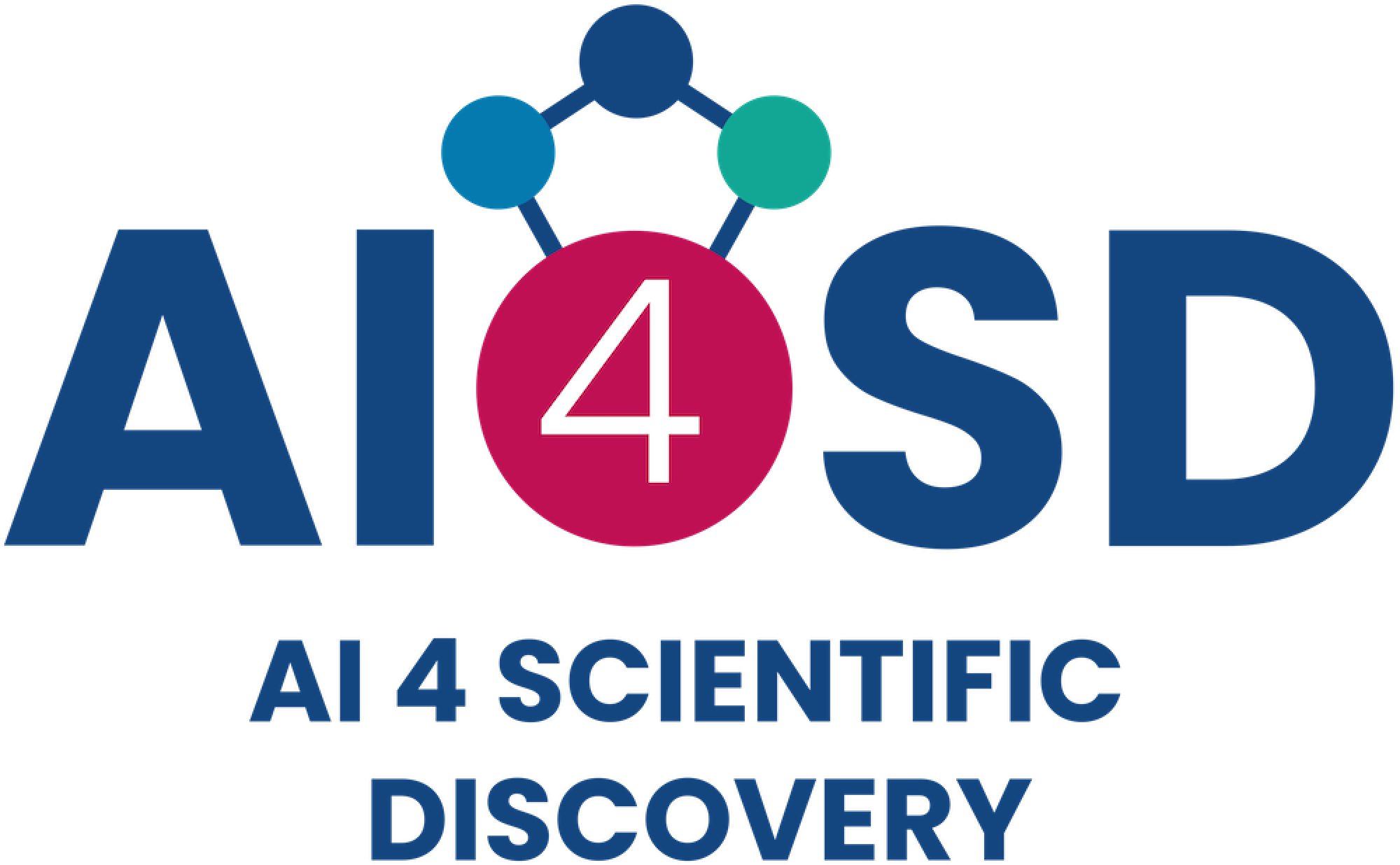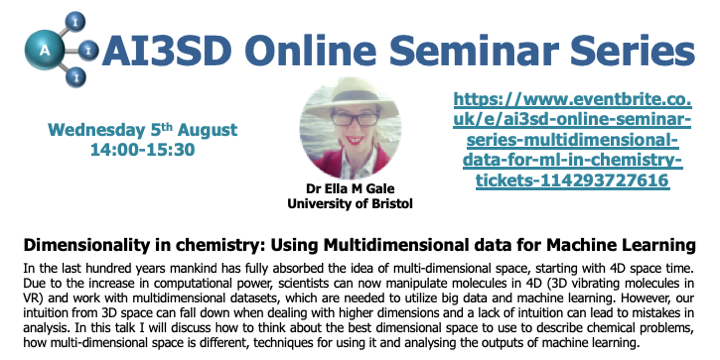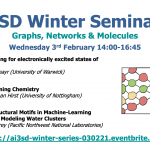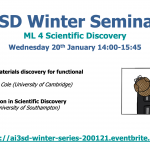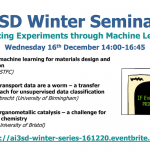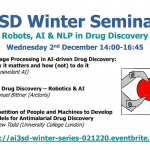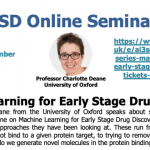Abstract: In the last hundred years mankind has fully absorbed the idea of multi-dimensional space, starting with 4D space time. Due to the increase in computational power, scientists can now manipulate molecules in 4D (3D vibrating molecules in VR) and work with multidimensional datasets, which are needed to utilize big data and machine learning. However, our intuition from 3D space can fall down when dealing with higher dimensions and a lack of intuition can lead to mistakes in analysis. In this talk I will discuss how to think about the best dimensional space to use to describe chemical problems, how multi-dimensional space is different, techniques for using it and analysing the outputs of machine learning.
Biography: Dr. Ella M Gale is the machine learning subject specialist attached to the Technology Enhanced Chemical Synthesis Centre for Doctoral Training at the University of Bristol. She has a PhD in Computational Chemistry from Imperial College London. In her career since she has worked in a set of diverse areas: neural networks, AI, cellular automata, unconventional computing, machine learning, memristors, computer vision, nanotechnology, materials science and supports colleagues in chemical engineering and synthetic chemistry. Her current research interests are applying machine learning techniques to de novo drug design and retrosynthesis and applying computer vision techniques to chemistry lab monitoring.
